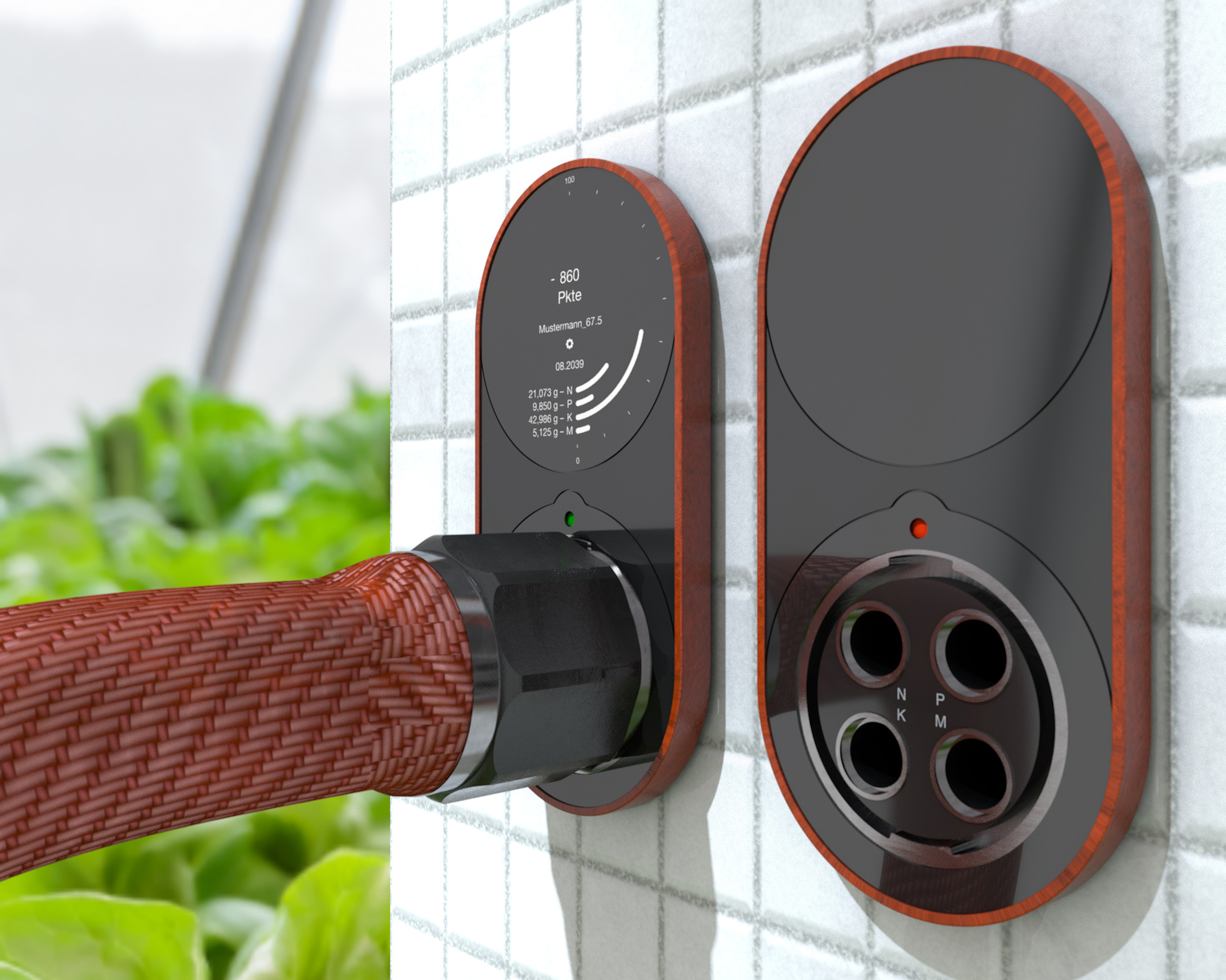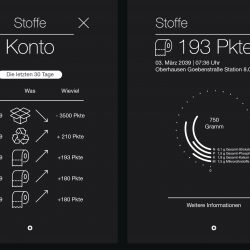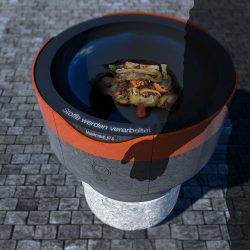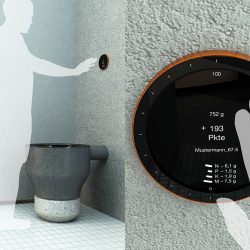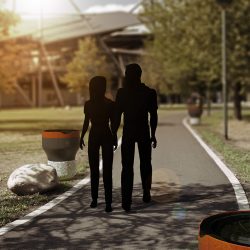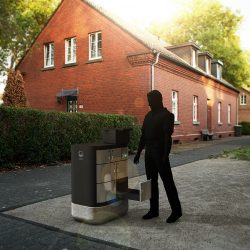Oberhausen – Schlaraffenstadt 2040. Eine Design Fiction
Description
2040: Oberhausen’s citizens trade excretions and biowaste for food. "Schlaraffenstadt 2040" is a design fiction for a future Oberhausen that feeds itself and owns Germany's first nutrient recycling system. Wastewater and biowaste become liquid fertilizer for the urban agriculture. The system rewards nutrient donations with bonus points for purchasing food.What is the Topic?
The world population is growing rapidly and the most popular food production strategies contribute significantly to the exploitation of finite resources. Phosphate rock is needed to produce industrial fertilizer. Without it humanity’s nutrition is seriously threatened. 2040: While other food-producing cities are experiencing severe supply shortages, Oberhausen is the first German city to overcome the effects of Peak Phosphorus – the world's maximum production rate of phosphorus. Despite societal health concerns, human excretions are an excellent nutrient source for food crops. The objects of the design fiction "Schlaraffenstadt 2040" invite to perceive human excrements and biowaste as vital raw materials.
Why does it look like this?
Uniform design principles help to quickly assign an individual public object to the overall recycling system in the cityscape. Circles form the visual framework: the cross sections of the garbage chute and the interactive toilet, the displays of the fertilizer outlet and the toilet flush, all diagrams of the interfaces and the logo of Schlaraffenstadt Oberhausen. The color orange-red stands out against the dark main colors of all objects and signals interaction possibilities at their touch-sensitive interfaces. Their existence is so ordinary in 2040 that, through monochrome luminous texts and graphics, displays are reduced to the most necessary visual information.
What is special?
Design becomes a means of science communication and social negotiation: The Fraunhofer Institute UMSICHT is coordinating the BMBF joint project SUSKULT that couples wastewater treatment with food production. The developed agricultural system will be tested at the treatment plant Emschermündung at the border to Oberhausen. In 2040, this idea is pushed to the extreme in Oberhausen and has already been taken several steps further. Here treated wastewater within urban food cultivation is not only socially accepted, but also distributed throughout the city to all citizens and perfected as a recycling system for other biowaste. Through the means of product design the design fiction demonstrates how technological progress can influence the design of everyday practices and objects and change attitudes towards current taboo topics. Exhibiting the fictitious objects and depictions of their use makes the impact potential of projects like SUSKULT tangible and discussable and increases their social acceptance humorously.
What is new?
Oberhausen already supplies all its inhabitants with plant-based food from urban production since the 2020s. In 2039, for the first time in Germany also the plant nutrients are urbanly produced. A new bonus system proverbially makes gold from excrements: Sewer-connected garbage chutes and public toilets are interactive and reward their users with bonus points after flushing down biowaste or excrements. These can be redeemed through tapping plant nutrients from the fertilizer outlet and by ordering urban food. Each citizen maintains a nutrient account that allows food orders and provides an overview of how many nutrients have been donated or withdrawn.

